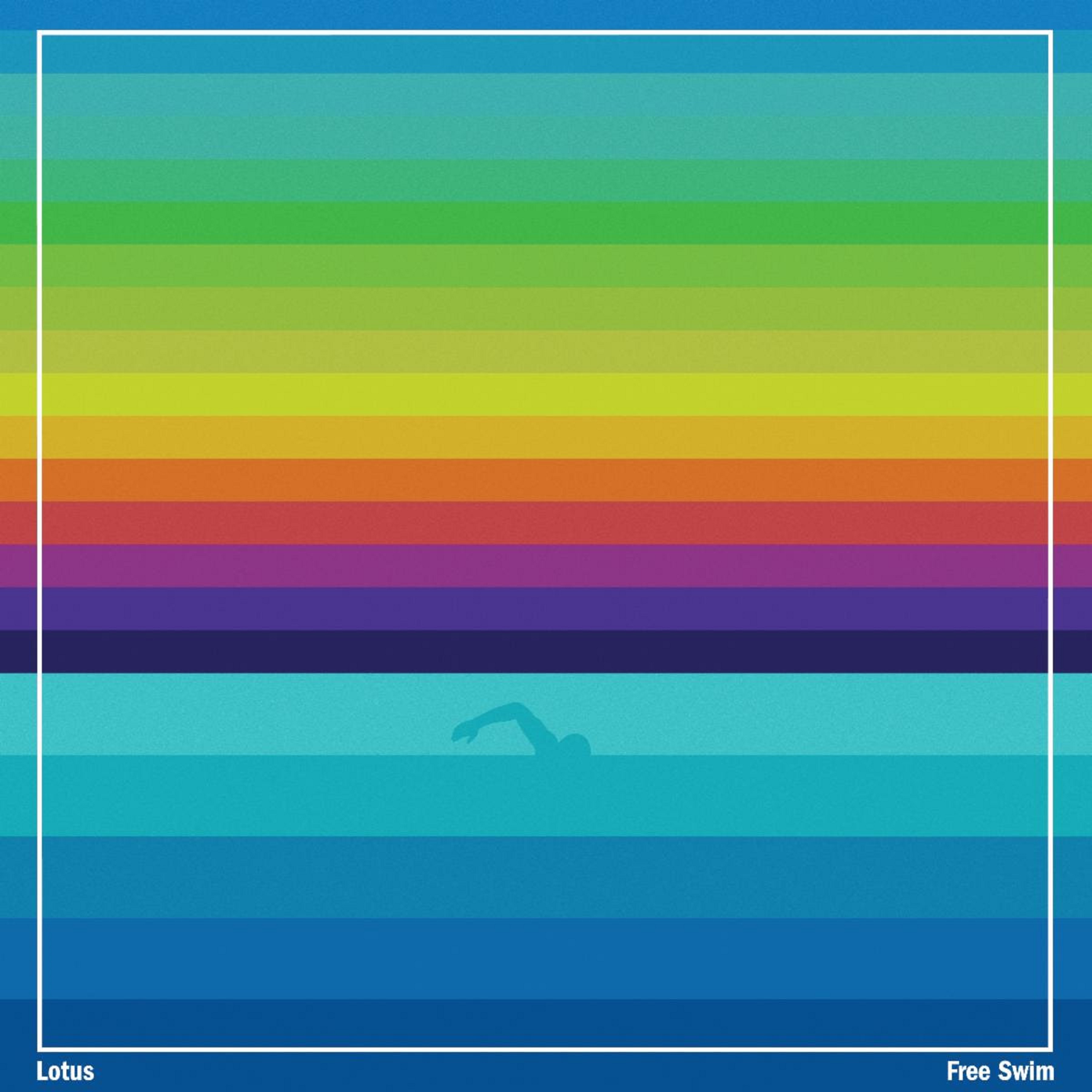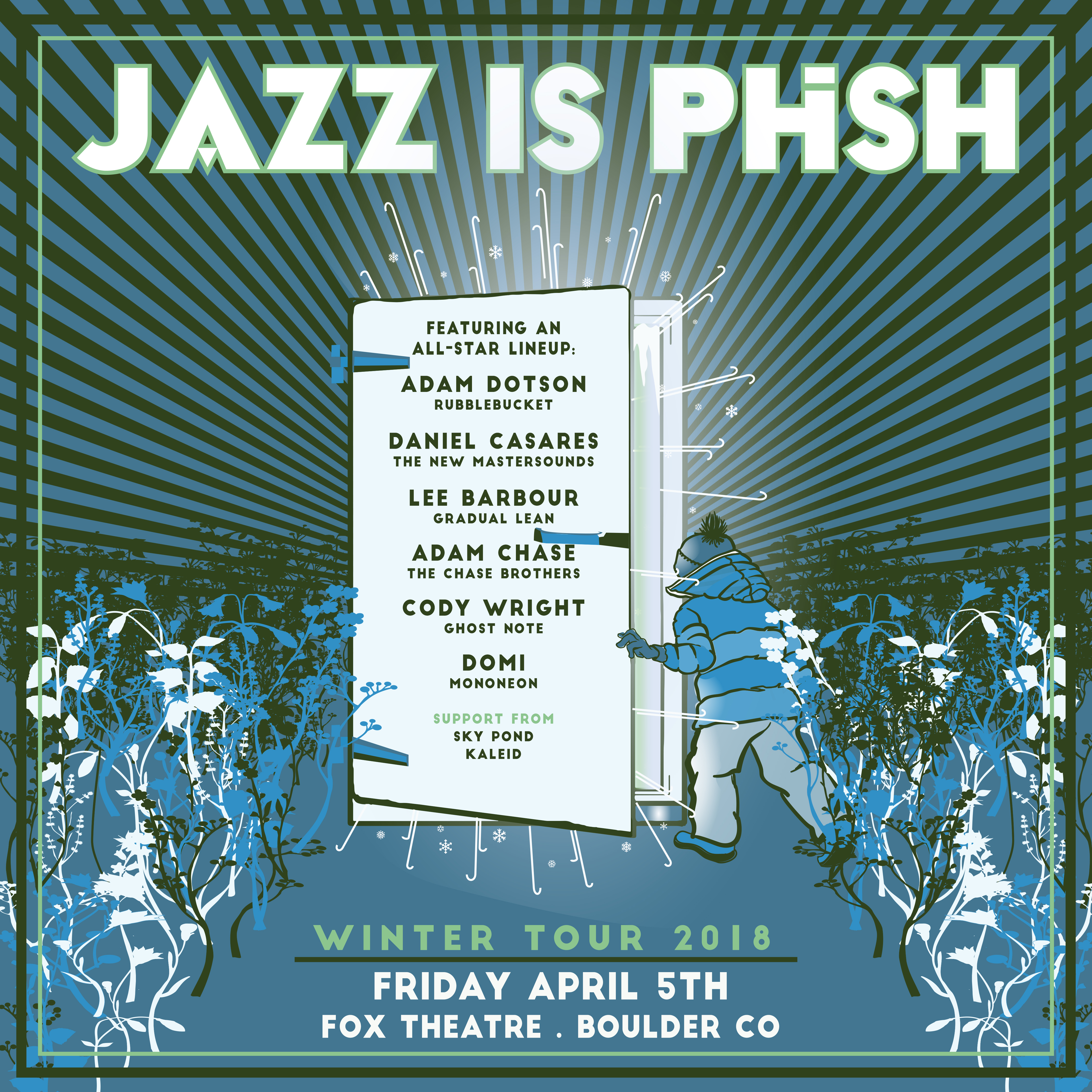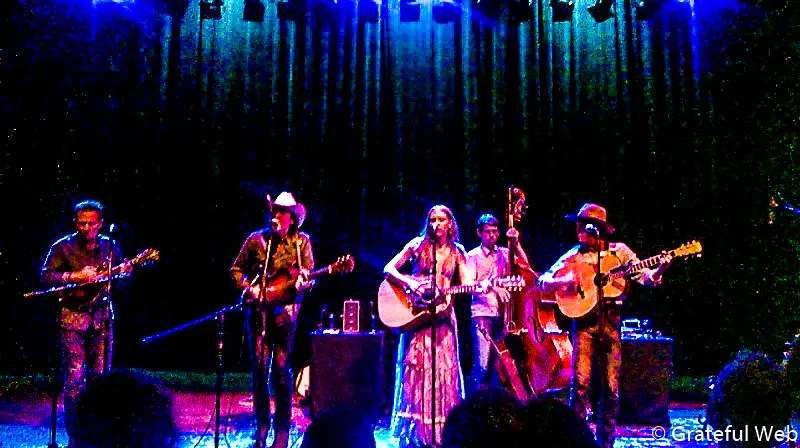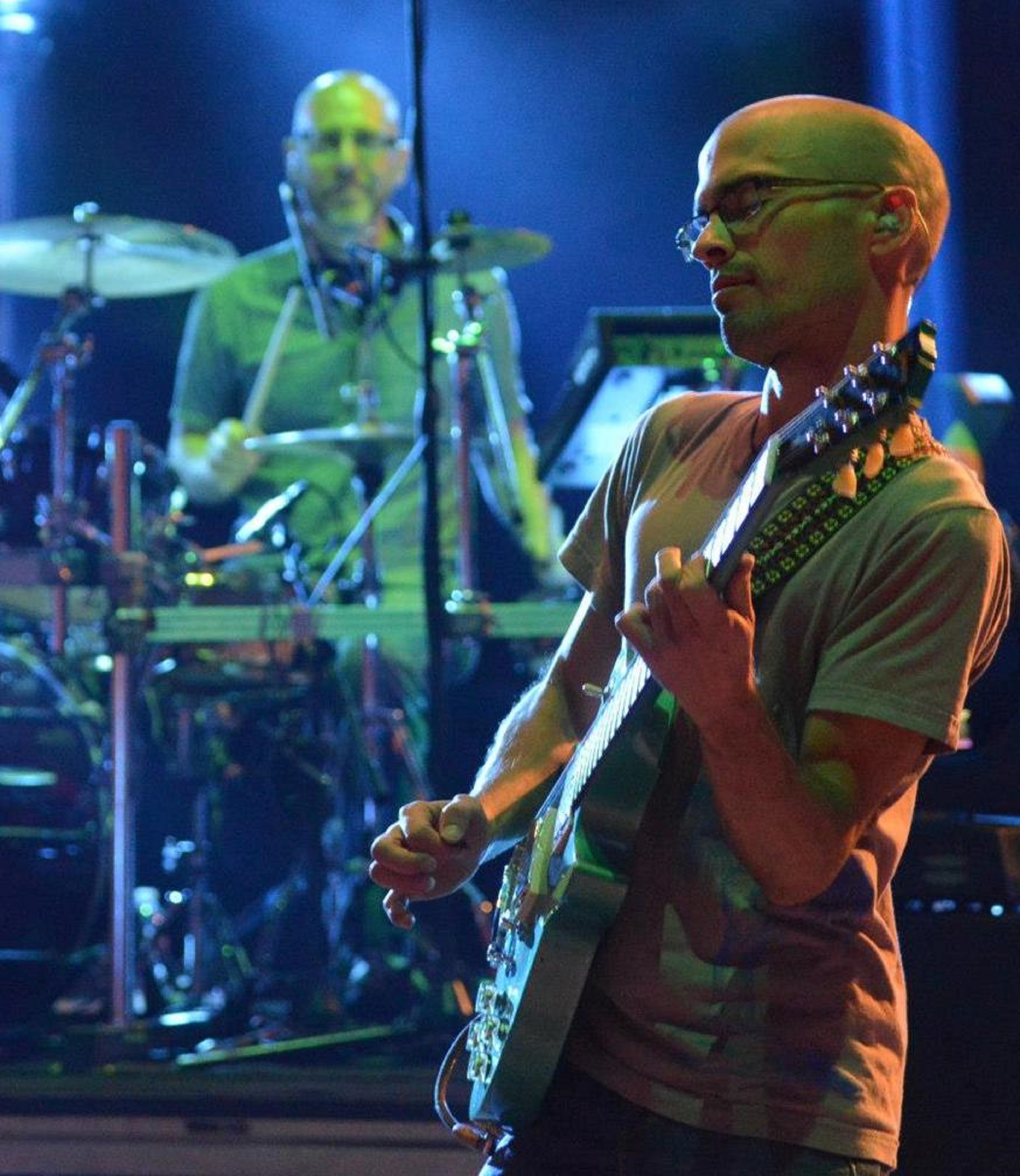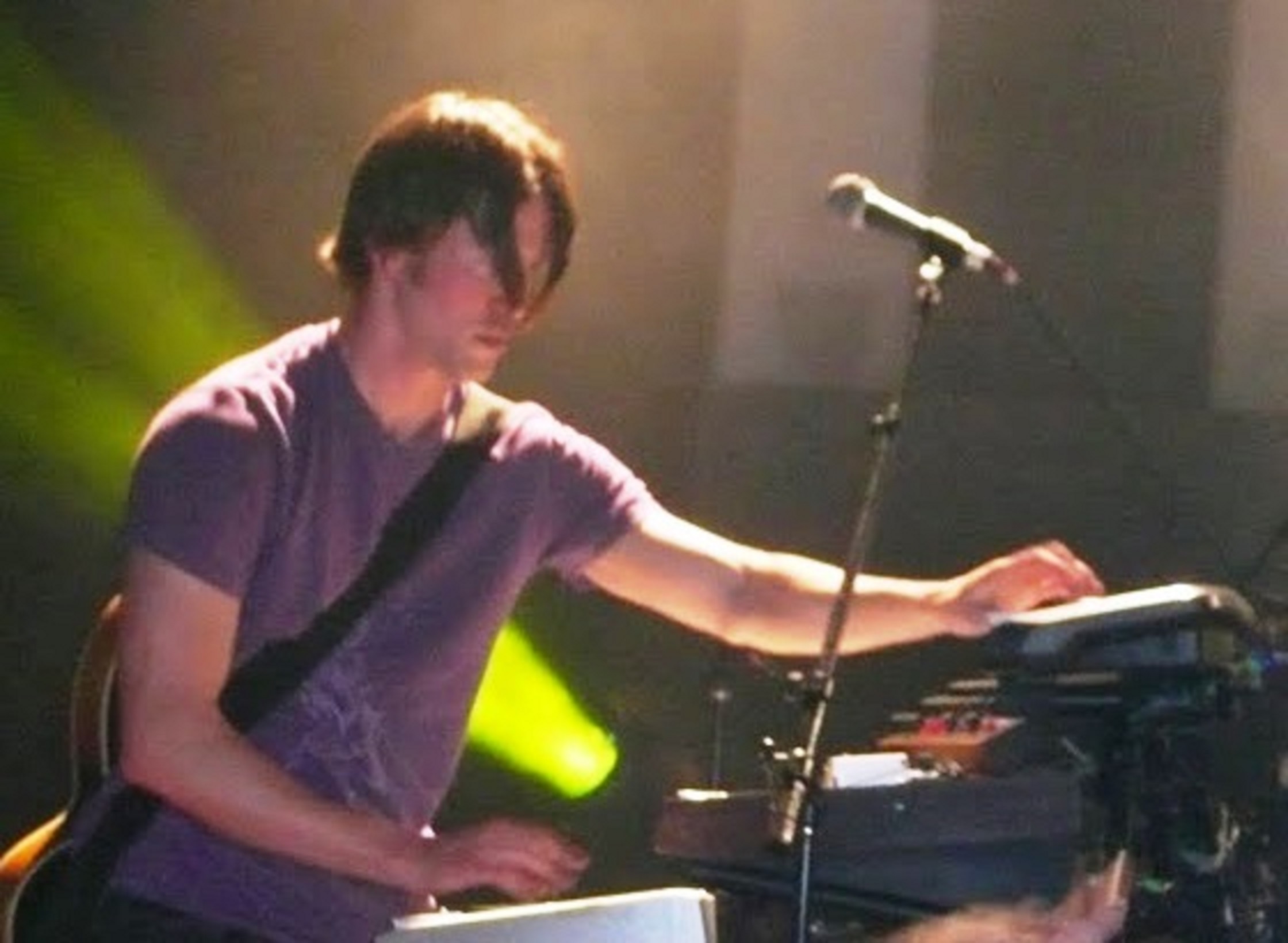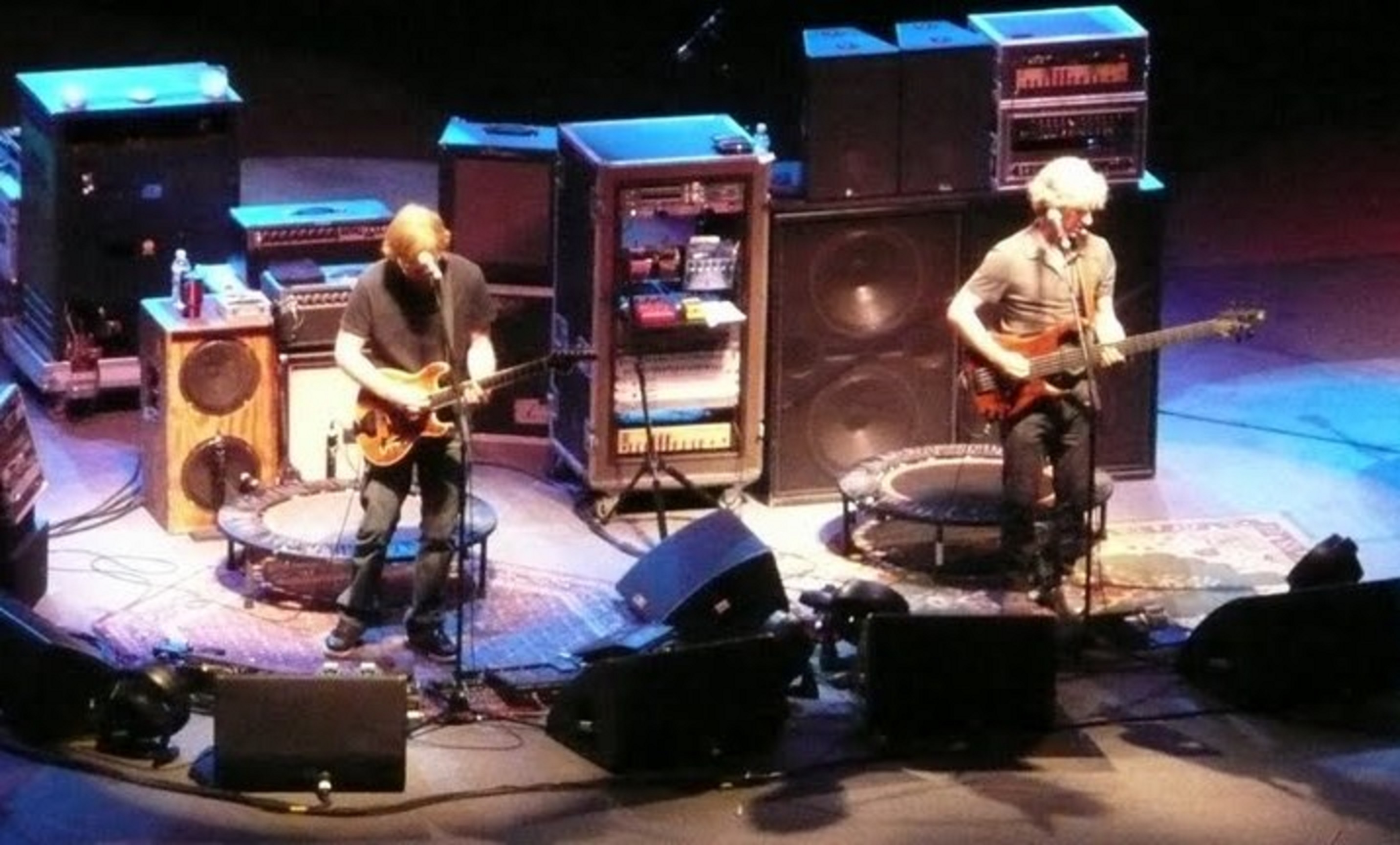Next Friday, August 21st, Lotus releases their new studio album, Free Swim, a ten-song hypnotic voyage featuring the best of the band’s strengths, which is to say a sublime mix of rock, funk, disco, and jazz, and - true to form - a healthy dose of catchy melodies and harmonies. Grateful Web had the opportunity to catch up with founding members Jesse and Luke Miller to review Free Swim, discuss their upcoming live-in/drive-in concert at Citizens Bank Park in Philadelphia on September 4th, and other off-the-beaten-path topics. From their respective homes in Philadelphia and Denver, Jesse and Luke answered an array of questions providing a new and intimate introspective on Lotus.
Grateful Web: Will you provide a brief background of who you are, how you came into the band, and how you contribute to the band?

Jesse Miller: Luke and I met Mike Rempel at a camp when we were in high school. Mike lived in Kansas and we lived in Colorado. We shared interest in some of the same music, but this being the 90s, it was not easy to discover music with the internet. We traded some tapes and album suggestions and had the idea of starting up a band. First year of college, I ended up going to school in Santa Fe, but Luke and Mike both went to Goshen College and started up a group that became Lotus. The following summer we all moved to Colorado with the intention of launching the band. We would jam in small, hot rooms all summer, learning to improvise and writing original music. The next 3 years we continued with the band while Luke and I finished college in Indiana. Then, we relocated to Philadelphia in 2002 and began to expand our touring.
Luke Miller: My name is Luke Miller. I play keyboards and guitar in Lotus. I started the band in college with a couple other guys at Goshen College. We were all into jam bands and funk music. After college we moved out to Philadelphia to try and make music into a career. We ground it out on the road touring around building a fan base from scratch.
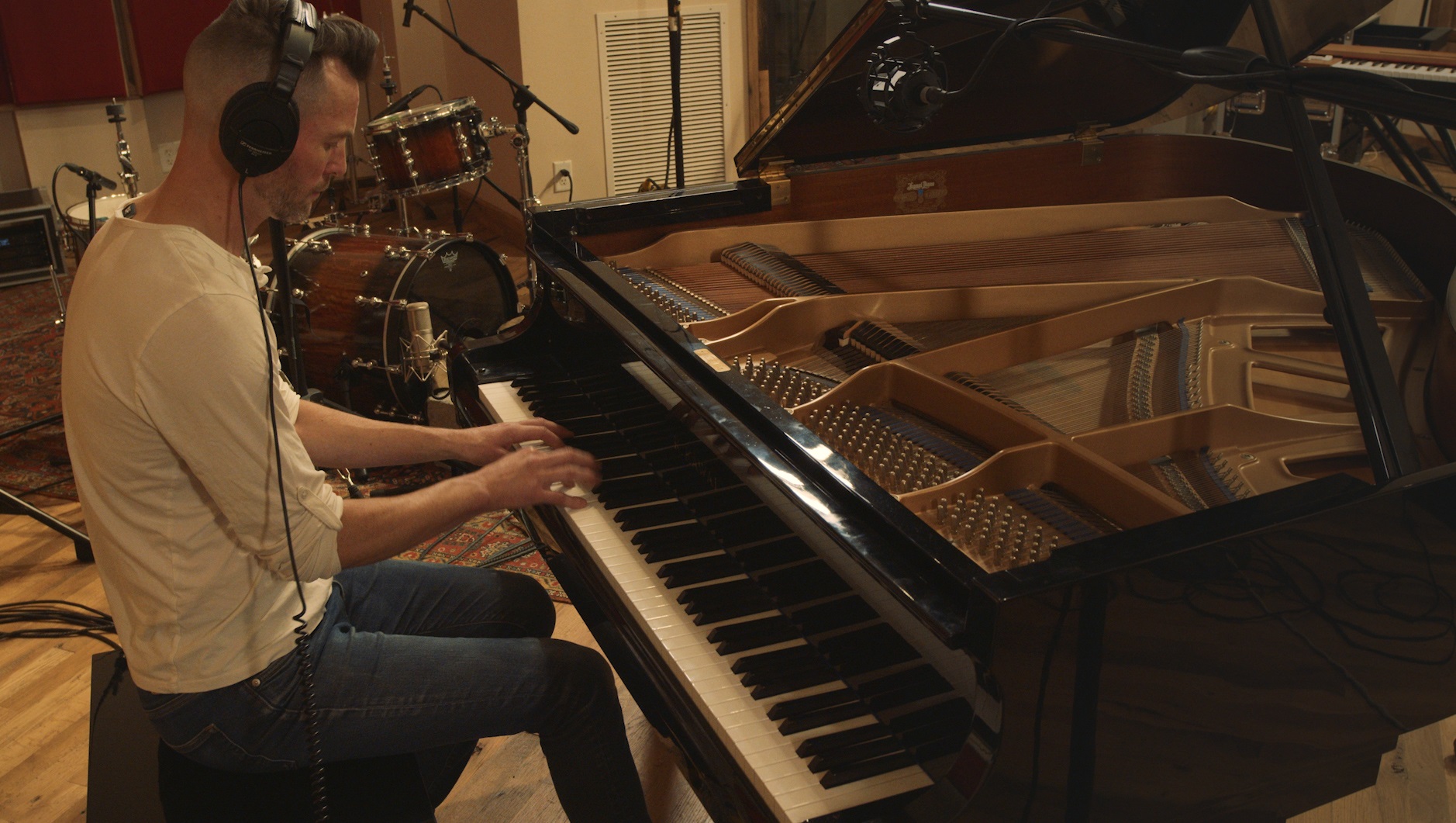
GW: It amazes me that after two decades of playing together, when most bands have already thrown in the towel, that Lotus continues to release exciting and innovative music. Free Swim is a breath of fresh air and a much welcomed release in the face of a pandemic. The music is wonderfully creative and inspiring. I was hoping that you could walk me through your creative process, from where you first conceptualize a song to its final arrangement. The press release states that Luke & Jesse are the ones responsible for writing and producing the songs, but I am also wondering if the other members contribute in some way. How do you guys stay so creative?
Jesse: Yes, Luke and I do all the writing. The other guys are bringing their own voices to the parts with their tone and playing styles. There is also a lot of improvisation during our live performances and some parts of the studio recordings. So, everyone in interpreting the music is their own unique way at those moments.
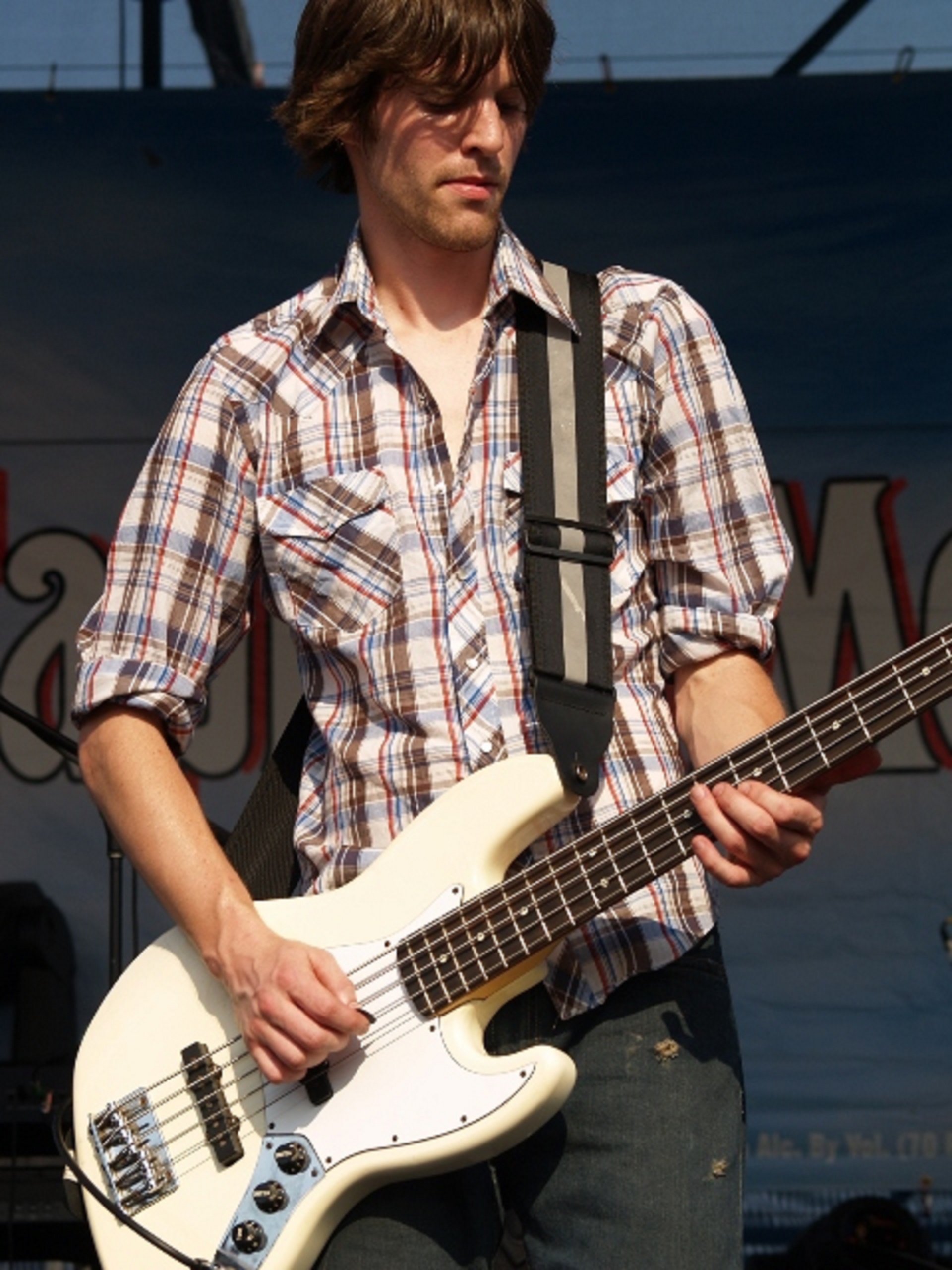
I don't believe in the idea that you are struck by inspiration in a singular moment. I think results come by working on art every day, developing and shaping ideas. I usually try to knock out my most pressing business matters in the morning and then start into music work whether that is mixing, editing arrangements or writing and recording. Luke and I send Lotus material back and forth many times while finalizing a demo, so there is a lot of listening, balancing different critiques while trying to be guided by your best intuitions.
Luke: I treat writing music in kind of a blue-collar way. Waiting for inspiration I believe usually just leads to waiting, not inspiration. Instead, I try to work hard to create my own inspiration, so I treat it like a 9-5 job. I generally build a song from the rhythm, to the harmony, to the melody. I think if you have a solid foundation you can put innumerable things on top, so I try to start with a groove that feels really good.
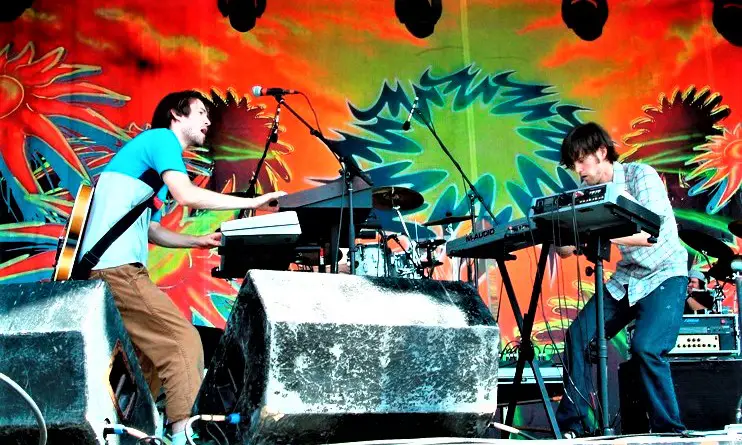
GW: Relative to your existing catalog, how would you describe your new album? Does it take on new territory? Are there new effects or sounds that your fans should know about?
Jesse: We wrote the music thinking about our live instrumentation, so it stays pretty close to the instruments we normally have on stage. We weren't looking to add extensive string sections, choirs or a lot of unusual instruments. That said, we did have a sax and trumpet on “One-Eyed Jones” and flute on “Catacombs”. We used a grand piano on a few of the tracks. That might be new, usually we use electric piano such as Wurlitzer or Rhodes and sometimes upright piano. This was the first Lotus album that I mixed from my studio. I wanted to keep everything sounding warm and live. I'd put the sound between late 70s and mid 80s sonically.
Luke: I would describe it as groovy, instrumental soundscapes. I don’t think it is radical new territory, but it feels like the tip of a spear of all the different experimentation we’ve been doing with song writing and production over the last 10 years.
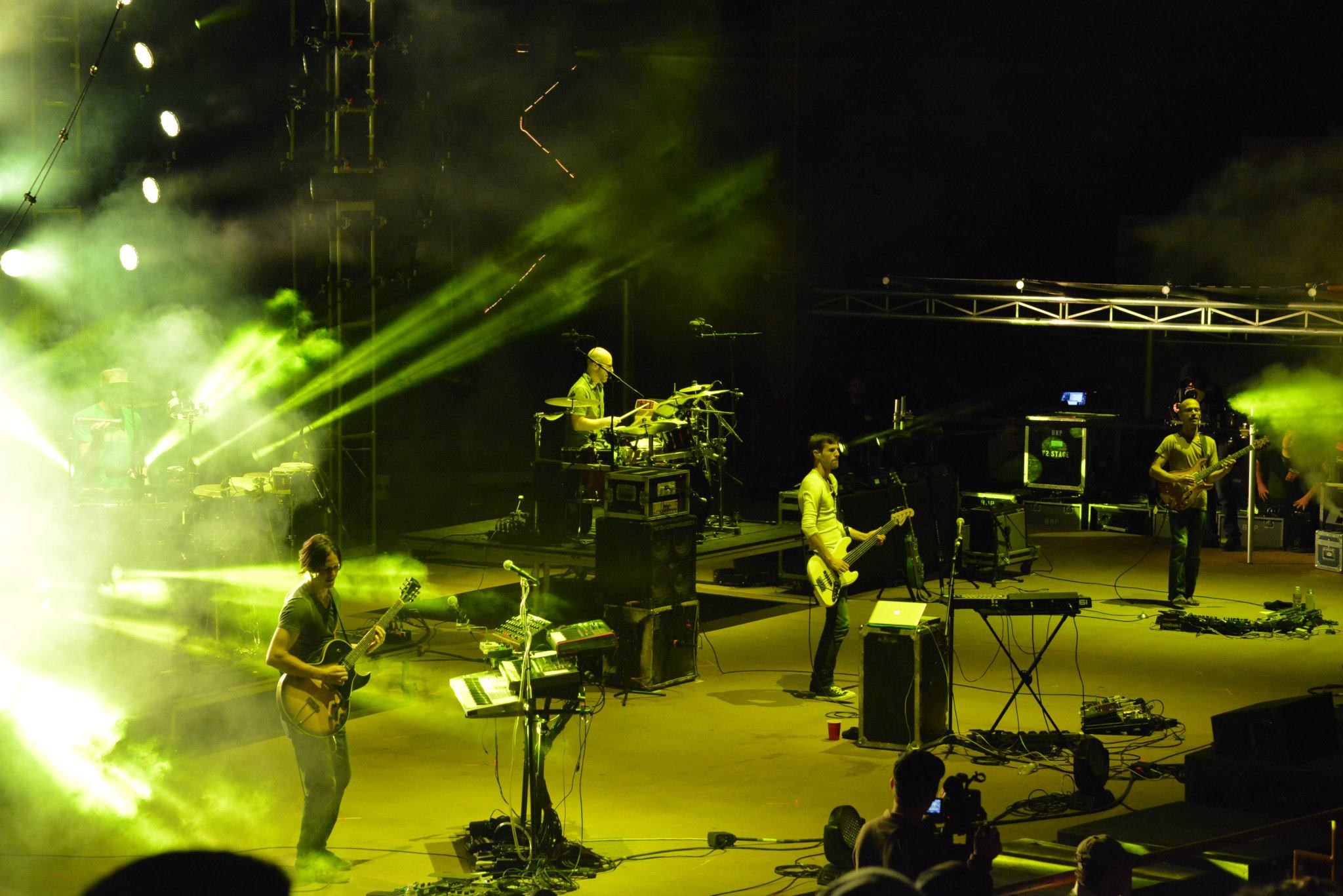
GW: One perk of being an album reviewer is that you get early access to great new music, the catch, however, is that you can’t share the music with anyone else. Well, I have a confession to make…. on my first listen (at Volume 11), my wife arrived home early from work, heard the music, began dancing a bit and then said to me “This is good! What is this?” (I told her that I couldn’t confirm or deny it was Lotus’ new album.) In these terribly gloomy days of the pandemic, it was nice to see her dancing and we talked about the healing and restorative powers of dance. You could almost make the argument that your live shows are a public health tonic. After being cooped up for weeks on end and remaining socially distanced – such an inhuman way of living - people are chomping at the bit for live music, to dance, to move, and to be together. You have mentioned that you miss playing live music, but have you thought about it in terms of the well-being of your audience? What kind of effect does the audience and its dancing have on your music? Are there any particular venues or shows that you can recall where audience dancing was noteworthy?
Jesse: Absolutely. Live music fills the role of ritual and builds a community for many people. I know so many musicians and music fans who plan their lives around shows. I go see shows whenever I'm not playing. It's an understatement to say we are all looking forward to being able to put on and attend safe concerts again in the future.
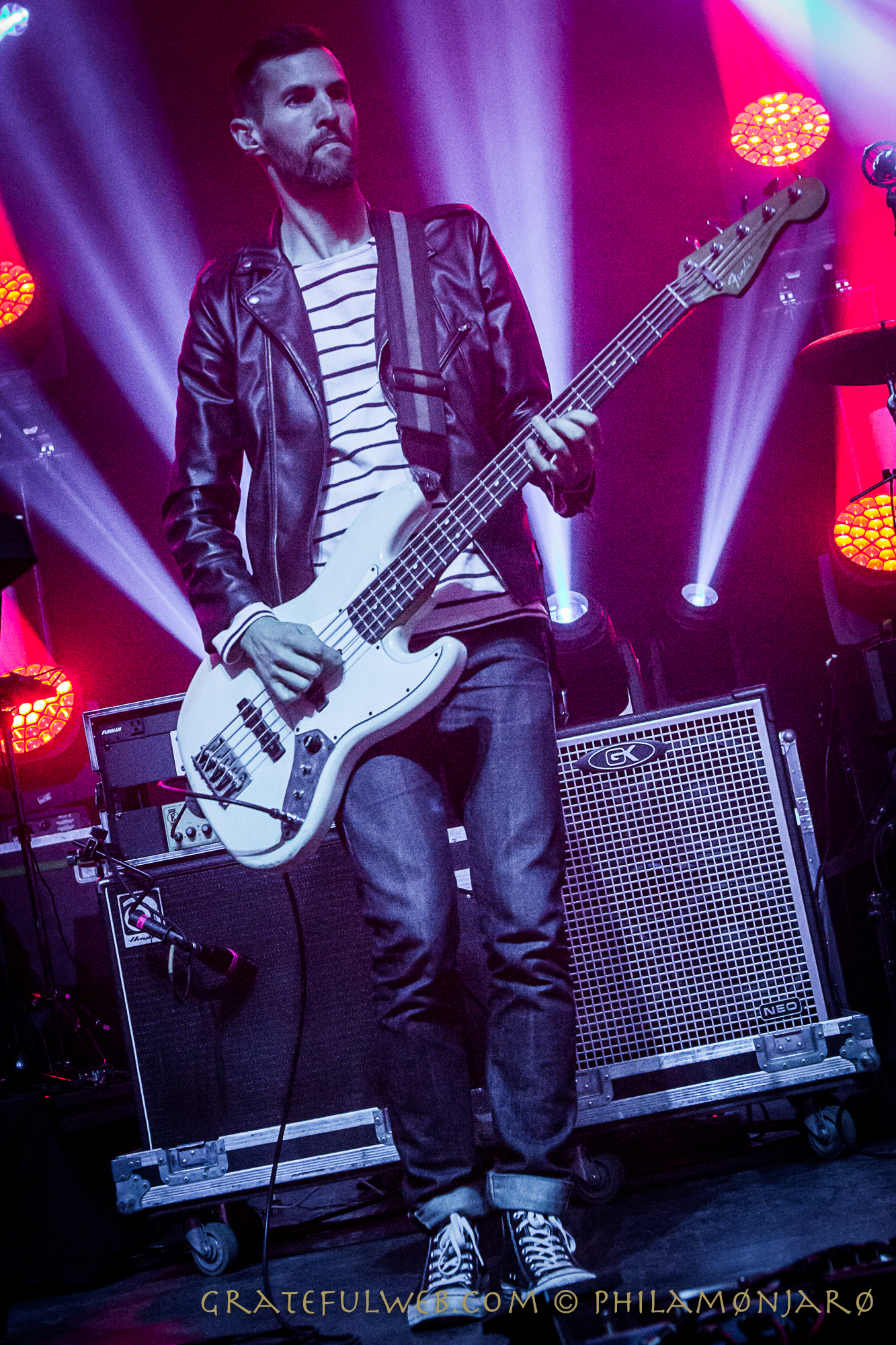
Dancing is always a big part of Lotus shows. You can feel the crowd reacting physically. I love mid-sized rooms like 9:30 Club in DC and Union Transfer in Philadelphia where it is easy to look out and see people dancing. Sometimes it feels like the whole room is one organism responding to the music. When it is going well, every note and turn in the music feels important and powerful.
Luke: I’m always picturing the audience while writing and producing music, so there’s a direct effect. One audience dancing image stands out in my mind. We were playing at Red Rocks in October and it was an early snowstorm and its was in the 20’s when we were playing, super cold. I looked out and in about the third row there was a guy with his shirt off, head banging and dancing like crazy.
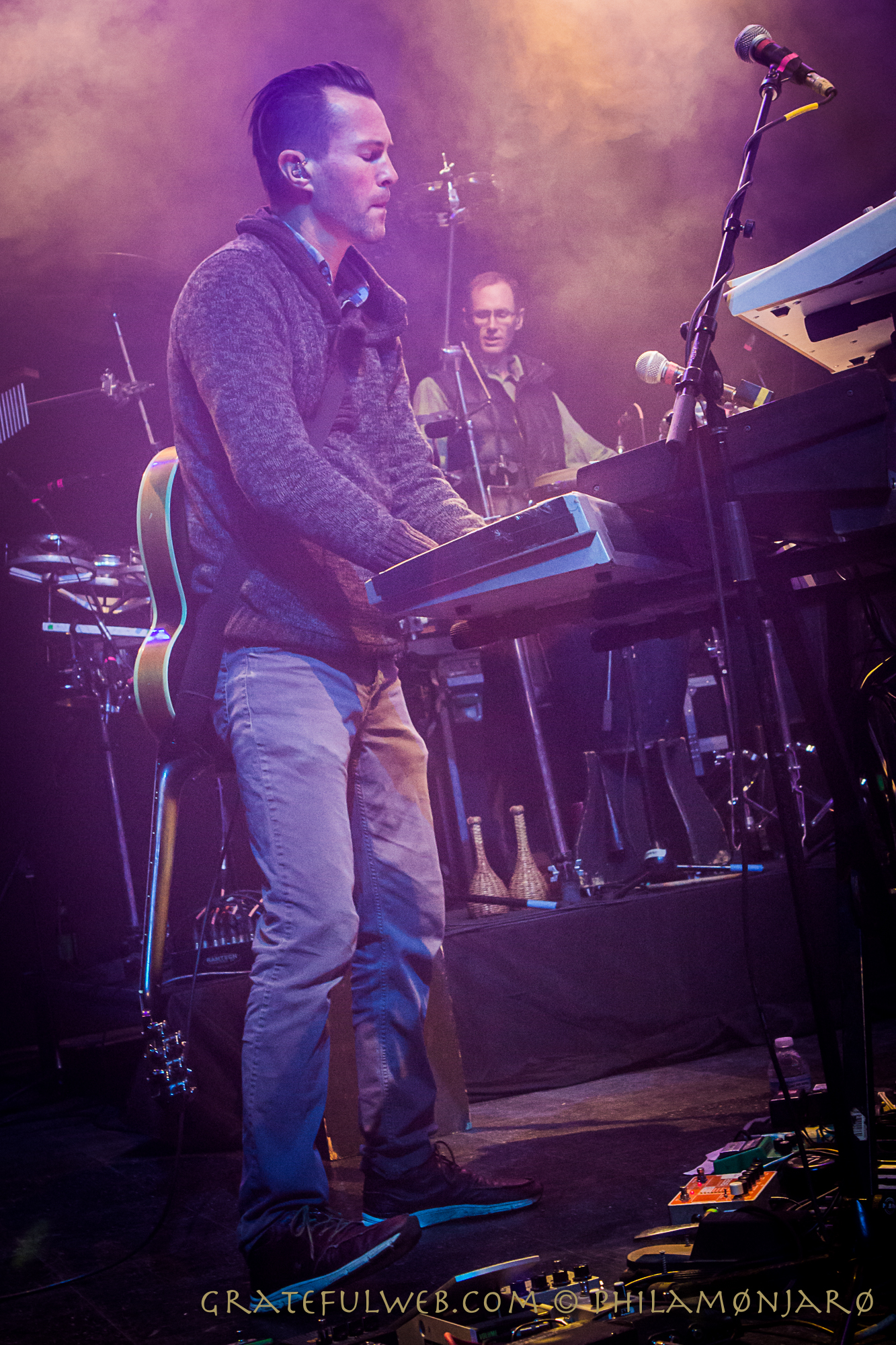
GW: Do you mind describing the experience that your fans can expect for your upcoming live-in/drive-in at Citizens Bank Park in Philadelphia on September 4th? Considering your fans love to dance, do you guys have a contingency plan if people start to exit their cars and get their dance on?
Jesse: Honestly, I'm not exactly sure what to expect since we've never played a drive-in style show before. But, we are putting our trust in the team Live Nation has put together to present the safest show possible.
GW: In your press release, you mention that the song “Catacombs” was inspired from a range of artists from Daft Punk and St. Germain to Nile Rodgers. Besides “Catacombs” having a nice groove and being a great choice for an album opener, what struck out to me was the flute. Was that inspired by Herbie Mann? How did that flute come about and who plays it?

Jesse: Luke wrote that part for flute and it was played by Sam Greenfield. I wouldn't say it was specifically inspired by Herbie Mann, but there is a great history of flute in jazz with Yusef Lateef, Rahsaan Roland Kirk and even John Coltrane playing on occasion. I'm a huge fan of the Mellotron flute sound, so it is a sound we've incorporated many times on a keyboard and it was great to have Sam to play the parts live for the studio recording.
Luke: Sam Greenfield played the flute part. His main instrument is saxophone, but he mentioned he’d recently played a flute solo while touring with Cory Wong. I had been listening to some old flute jazz and funk, not necessarily Herbie Mann, but contemporaries of his.
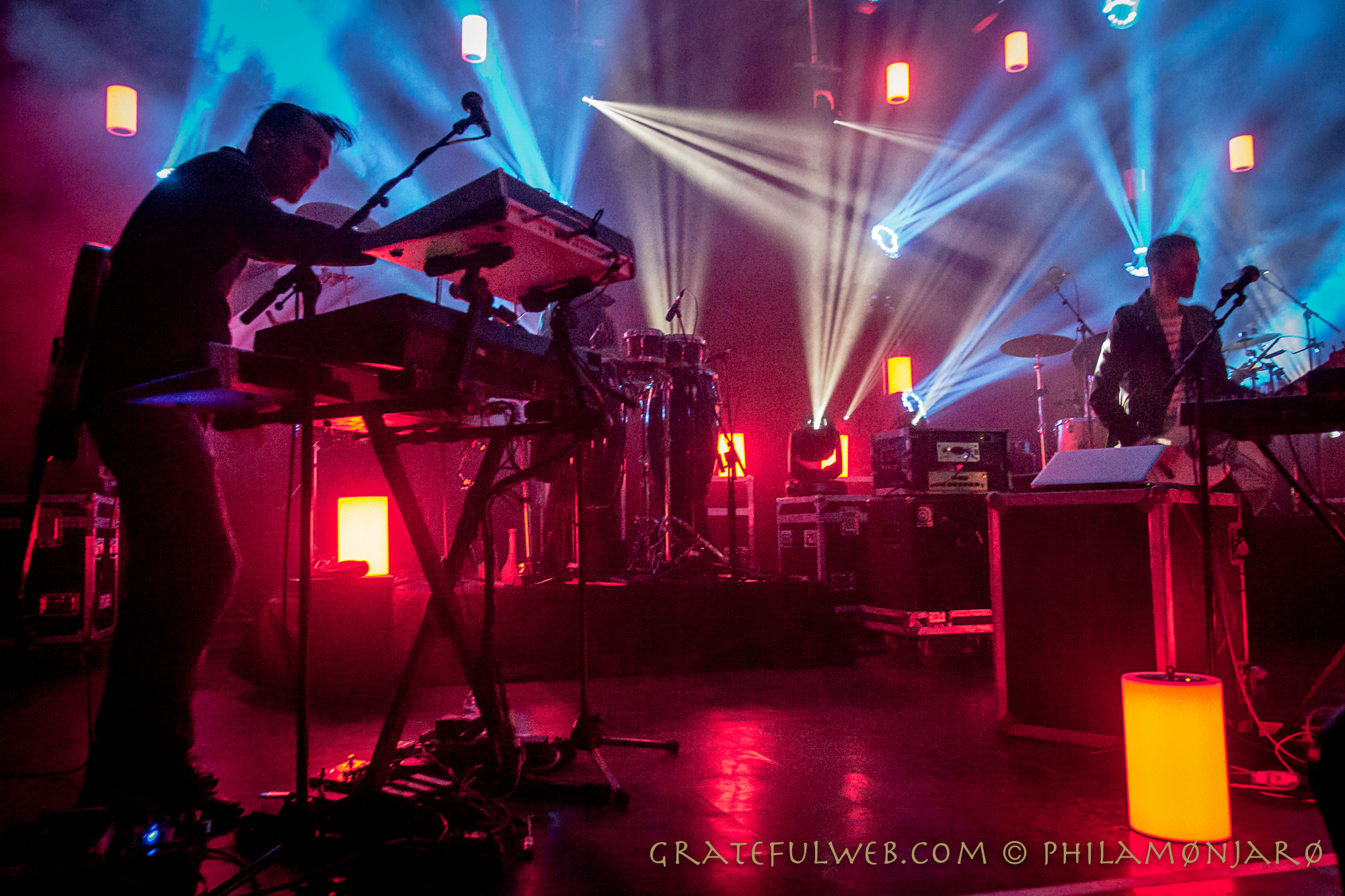
GW: A song on a studio album and the same song played at a live concert are two different things, the latter often taking a life of its own. Do you have any predictions of which songs on Free Swim will be fan favorites or which songs will be taken on long, experimental improvisations? Or is it too difficult to tell? Do you have any stories to tell about previous songs from previous albums that surprised you in how they materialized when played live?
Jesse: All of these tracks will probably be extended live to some degree. But, based on the beats, “Catacombs,” “Free Swim,” “Bjorn Gets a Haircut,” “One-Eyed Jones” and “Land of the Lush” are particularly suited for more extended improvisation.
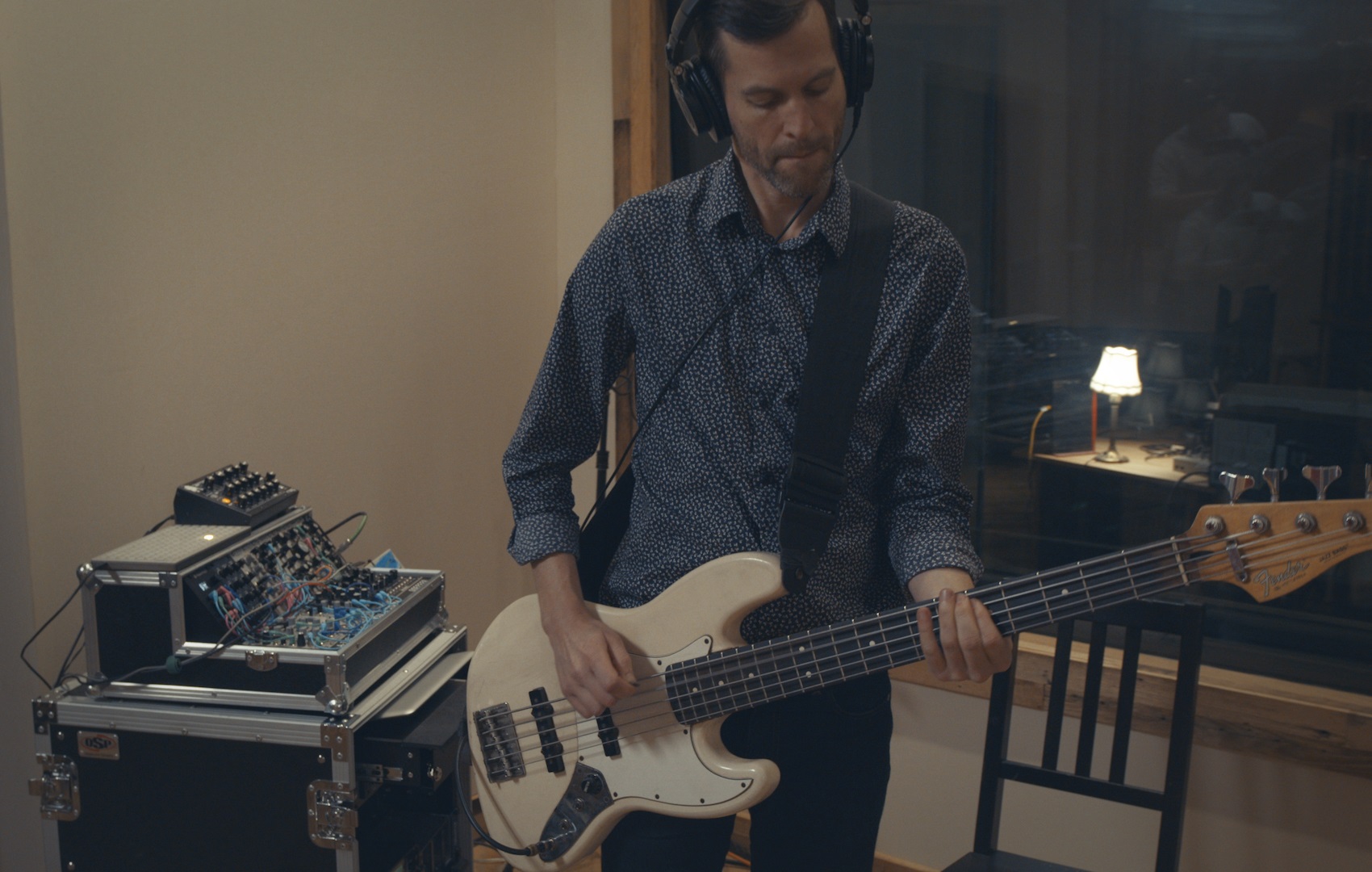
A couple songs that had improvisation sections developed by playing them live are “Bug Love,” “Cold Facts” and “Destroyer.”
Luke: I could see “Land of the Lush” becoming an exploratory vehicle and fan favorite. “Stranger Danger,” from our last album Frames Per Second, has been turning into a fun jam song, especially segueing it from its funk vibe into something else more dance-oriented.
GW: How do you name your songs? Are they arbitrary or is there a meaning behind them? Can you give a few examples that reveal this mystery, please?
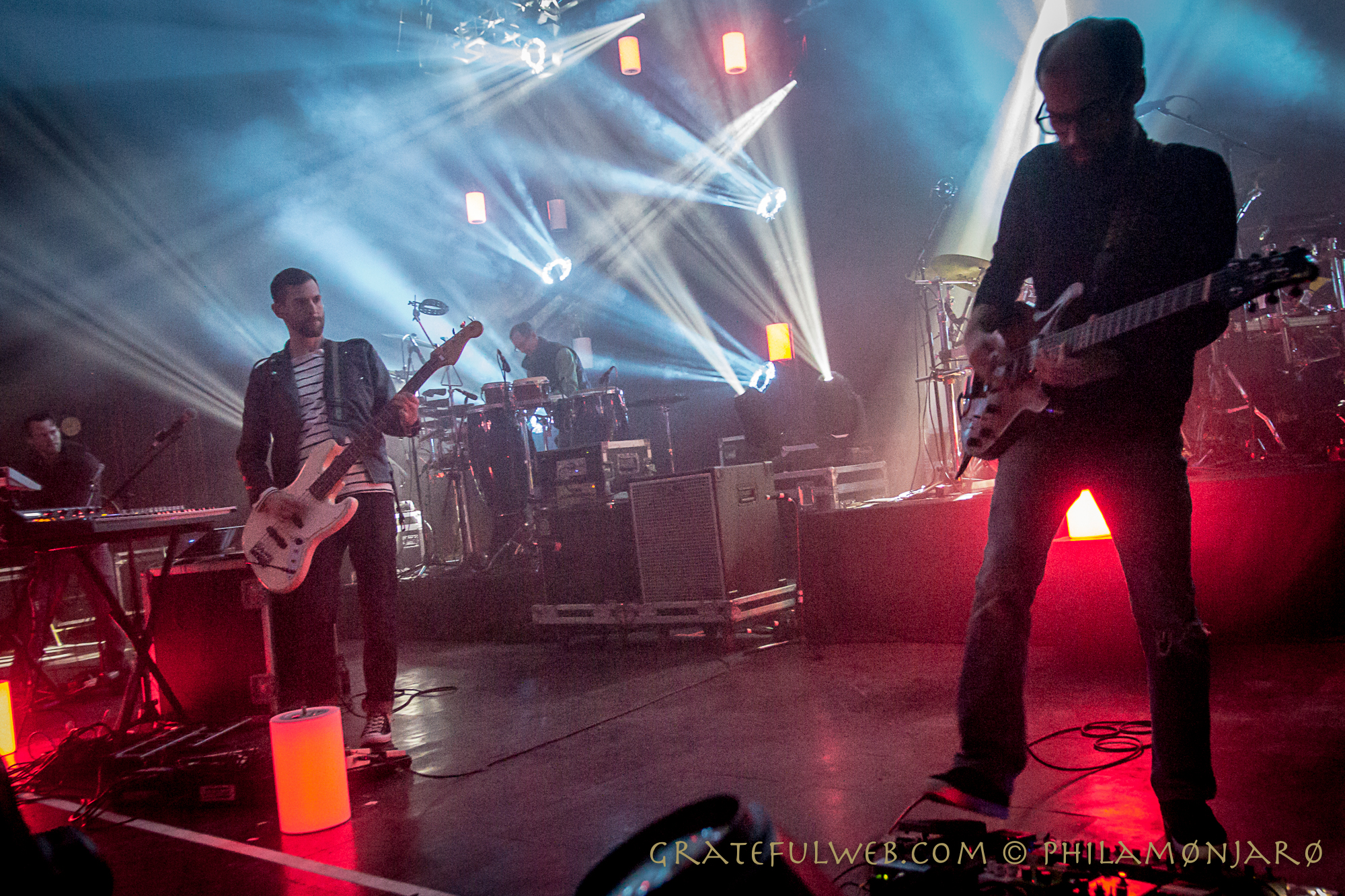
Jesse: For me, it is usually trying to evoke part of the vibe of the song. “Turtlehead” gave me a feeling of swimming underwater, moving in and out of beams of light. “Straight Blade” felt slightly dangerous. The fast, syncopated beat has a precarious feel, like balancing carefully on an edge, hence the reference to a blade.
GW: Some of the guitar phrases on “Sepia Rainbow” have a certain Khruangbin flavor to them. Is there any connection there?
Jesse: It draws from similar sources of inspiration as Khruangbin - global funk, soul and exotica. The guitar in the pre-chorus section with all the pull-offs definitely evokes a sound of string different instruments heard around the world.
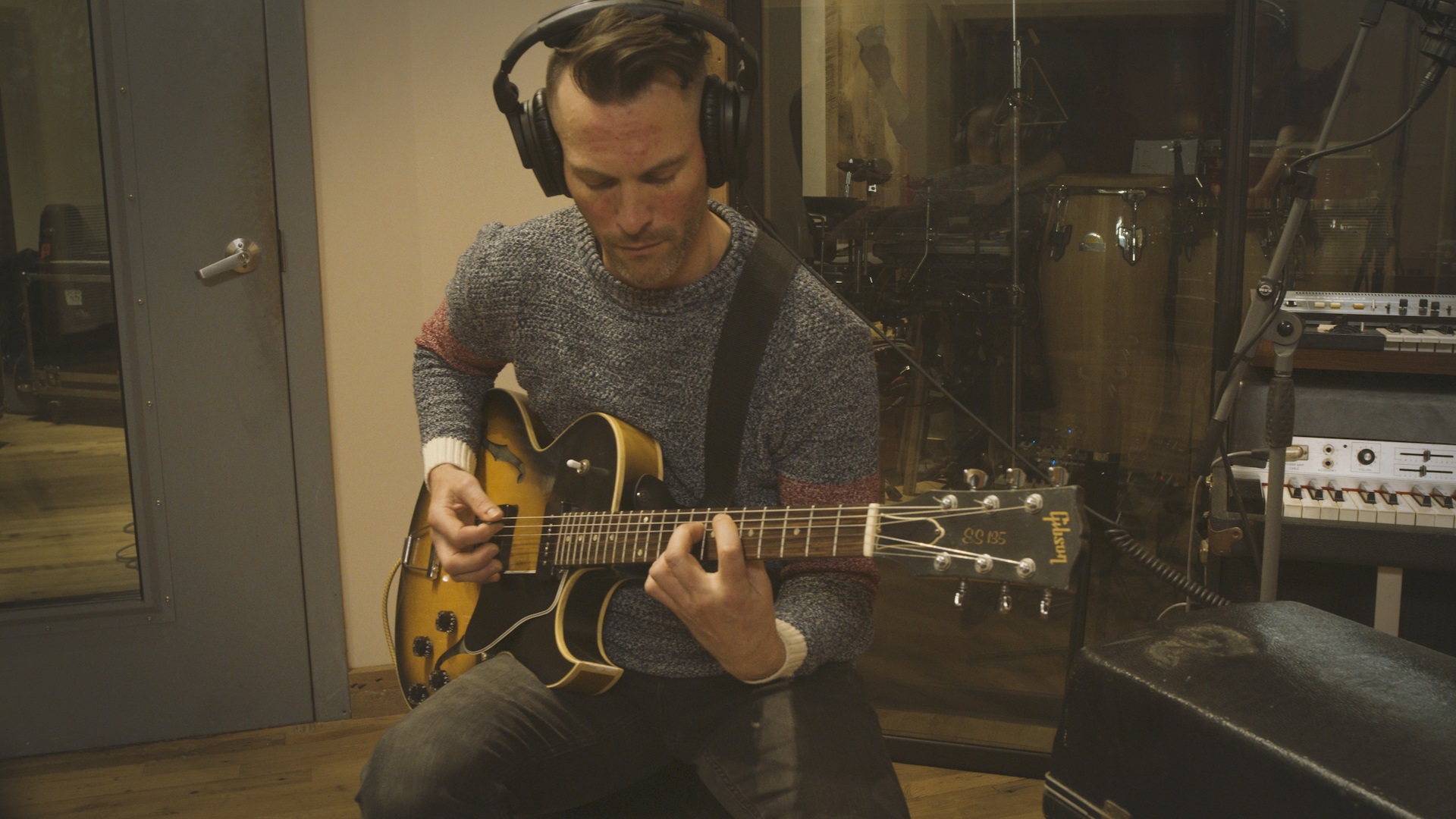
Luke: On the bridge of “Sepia Rainbow,” it goes into a Phrygian scale, which has a slightly exotic sound. Khaungbin utilizes some exotic scales as well.
GW: “One-Eyed Jones” features some of my favorite guitar passages on the album, specifically starting at around the 1:38 mark, with some great interplay with the bass. Was that composed or improvised? How many cuts did it take to capture?
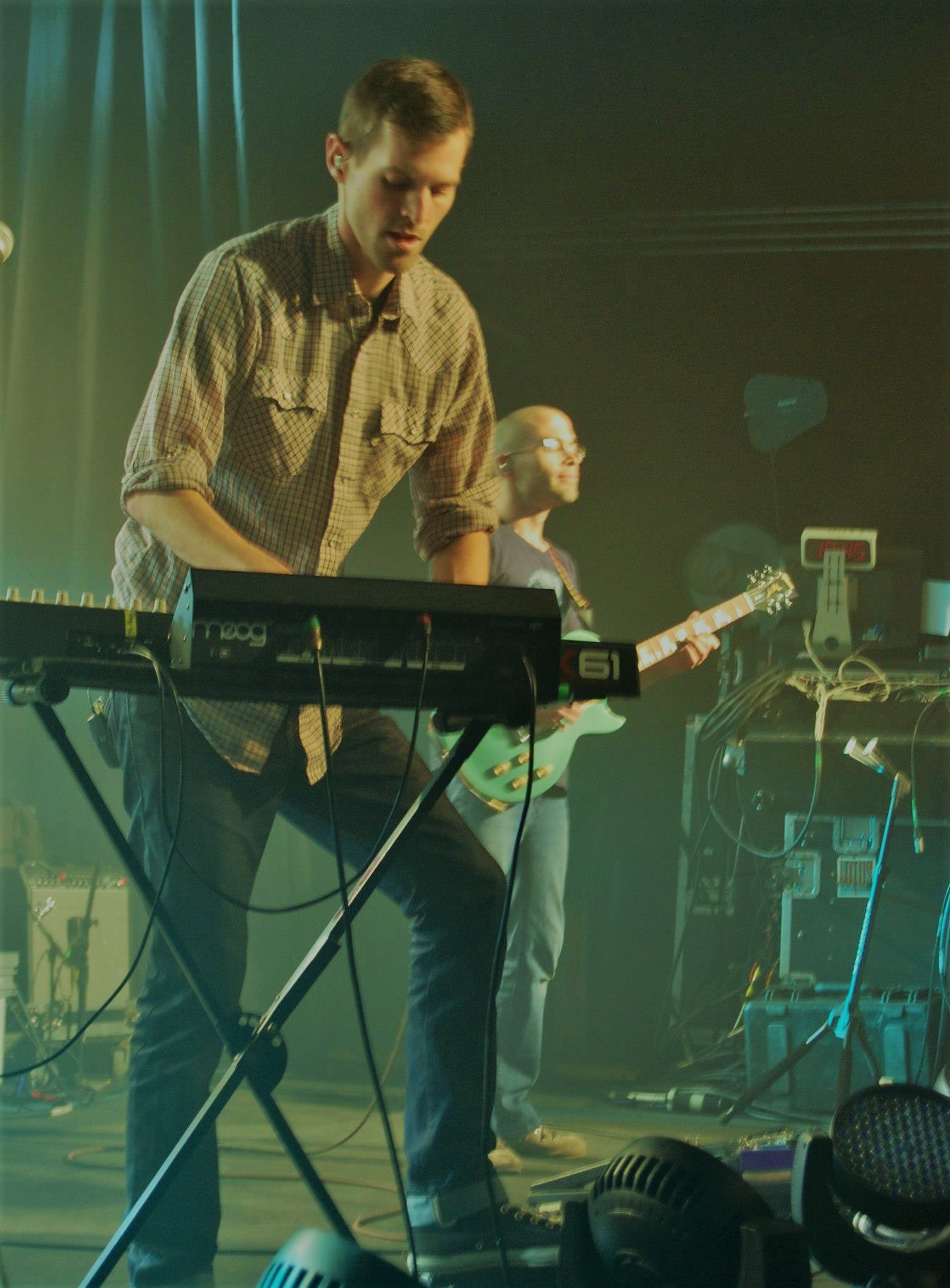
Jesse: That section has a composed guitar part with the bass and clavinet improvising around it. With “One-Eyed Jones,” we probably did more takes than some of the other track since we had the horns in the same time in the room with the drums. That means there was a fair amount of bleed between those microphones, so everyone needs to be on-point for a take. Maybe five or six takes total.
Luke: That part is composed, with Jesse improvising the bass fills. I think we did 4 takes on that song.
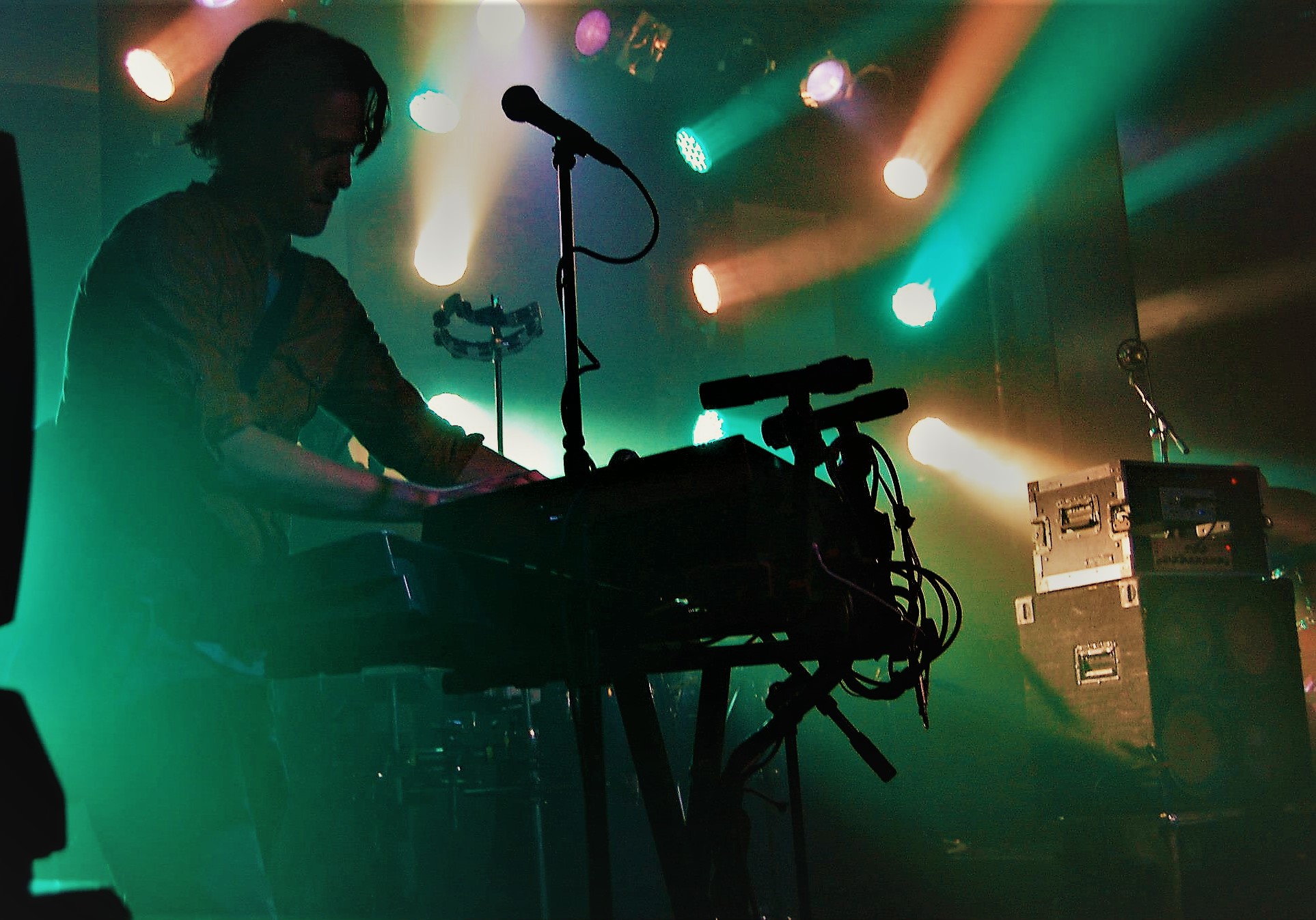
GW: I really dig the album cover art, which invokes a classic 70s style. How did you come up with it? Will it make it to a t-shirt?
Jesse: Thanks! I did the artwork. It was inspired by works by Frank Stella and Ellsworth Kelly, who both did some amazing minimalist spectrum color paintings in the 50s and 60s. So, I'd say more of a modernist influence than a 70s influence. But, I was also inspired by a couple album covers from the ECM catalog in the 70s that portrayed water with a spectrum of bars.
It is already a shirt! Merch packages can be ordered from our website and include download codes for the album.
GW: What exactly is this “live-reactive” system that you use in concerts and on “Bjorn Gets a Haircut”? What does it do and how does it work? How has it impacted your concerts?
Jesse: This video explains the system. It is a program I've been developing that uses triggers on the drums, movements on my keyboard controller and live knob movements by our light designer to generate video in real time while we play. It doesn't have to process audio, so it reacts extremely quickly – you can hit a snare and it will have an immediate effect on an LED screen behind the band. The system is built using Max/MSP/Jitter and Ableton and involves communication between 3 computers and MIDI from multiple sources.
For the “Bjorn Gets a Haircut” video, I programmed a look using shapes that were moving against each other in evolving and randomized waves. The snare drum hits change movement of the shapes at certain times and I had about 6 knobs on a controller set to control various ranges and parameters of the evolving video. I did live takes to the song while capturing the video output and then edited the results with the in-studio footage.
GW: How have you been staying sane in the face of Covid? Has the band continued to collaborate? If so, how?
Jesse: I've been trying to keep up a robust schedule of writing music for Lotus and my other projects such as Octave Cat, BeesWax and Beard-o-Bees. I've been doing some mixing and production for some other groups as well. Lotus has still been working, we wrote another album's worth of music during the initial lockdown.
Luke: Jesse and I have been working on new demos in the same manner we always do. I have a mini studio in Denver and Jesse has a bigger analog-based studio in Philadelphia. We send ideas back and forth.
GW: Have you heard of a software program called Jamulus, which enables musicians to perform real-time jam sessions over the internet? Would you ever consider streaming a Jamulus concert for your fans?
Jesse: I have, but there is an inherent problem with latency. Music require very small levels of latency to work remotely. The only ways I've seen it actually work smoothly are with incredibly fast connections usually only available with super fast fiber-optic infrastructure.
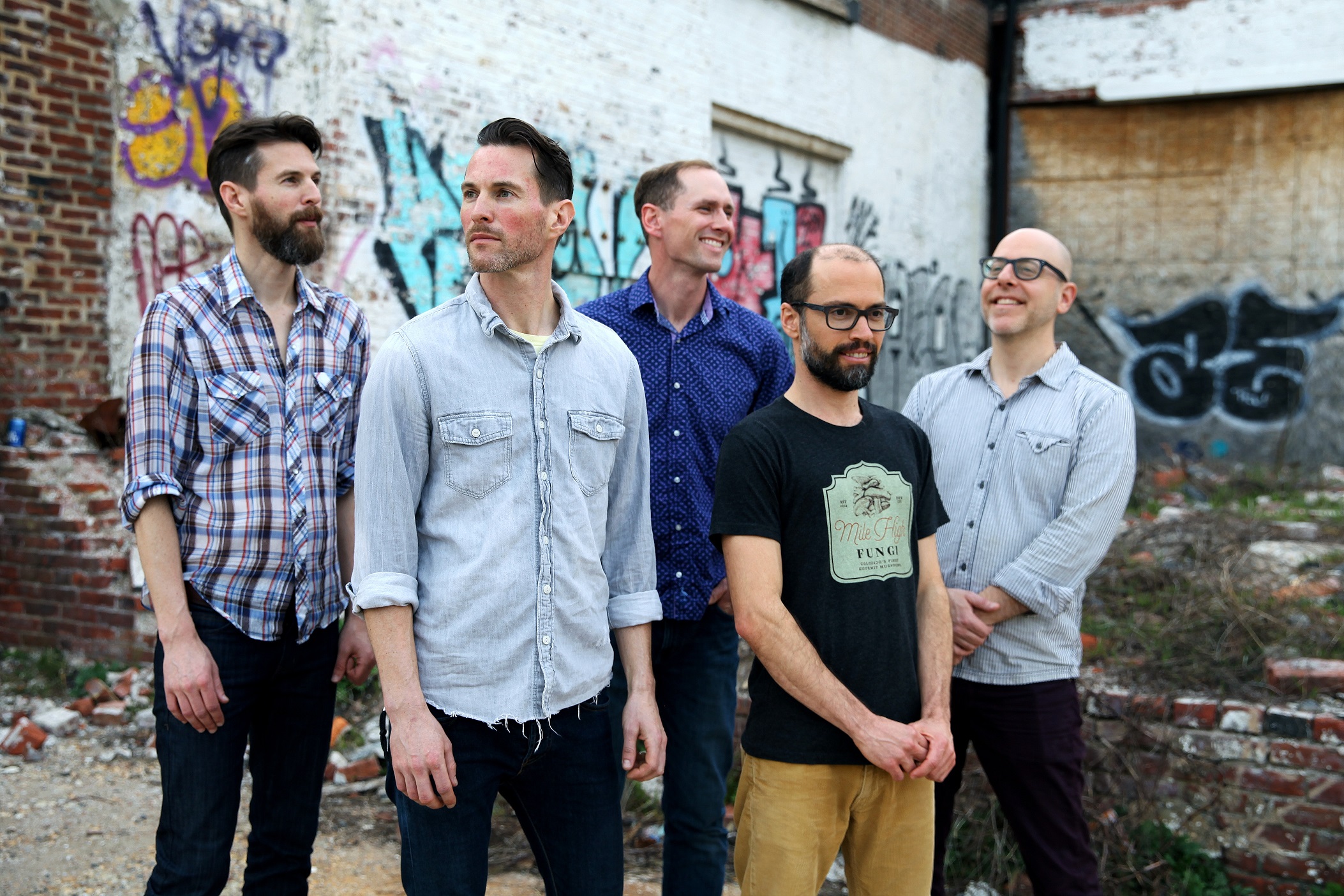
Luke: I haven’t heard of it. Sounds interesting.
GW: Do you have any closing thoughts for your fans about hopes and dreams for the future? Do you intend to tour as soon as you’re able? Any new and exciting events on the horizon, like playing at a new venue or new state or new country?
Jessie: Like everyone else, we've learned that trying to plan live events with the amount of uncertainty that exists right now can be a losing battle. There is hope though. Although the US population and government has not handled the pandemic well, there are many cases around the world of other countries getting it under control. And the results from some of the vaccines test phases look promising. Mask up, make smart choices, trust the experts and we'll make it to the other side.
Luke: As soon as it’s safe, we will be out playing live music again. I’d love to break into Europe. Jam bands for whatever reason have had very little luck with.





